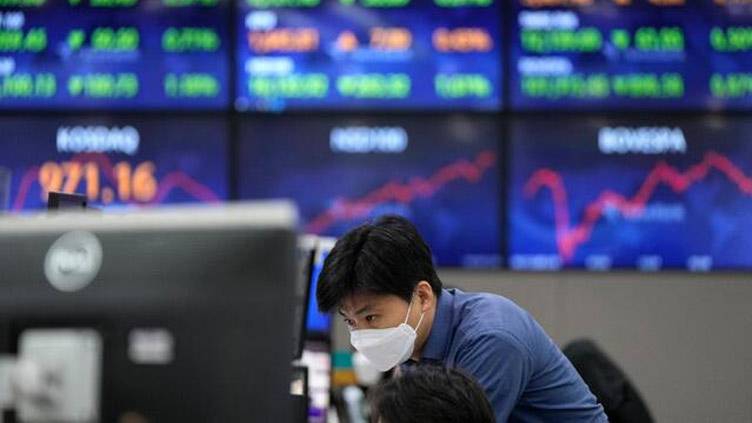Asian markets rallied again Monday, building on last week’s advances and following a strong performance on Wall Street as speculation that inflation may have peaked tempered expectations about central bank interest rate hikes.
With prices surging at a pace not seen in a generation, finance chiefs have been forced to lift borrowing costs and wind back their ultra-loose monetary policies in recent months, sending a chill across trading floors.
But a string of weak data has led many investors to believe that inflation may have plateaued or is about to, giving room for banks to be less hawkish.
The prospect that rates will not go as high as initially expected helped send Wall Street stocks higher Friday, with the S&P 500 and Nasdaq ending up more than three percent.
And Asia continued last week’s rally.
Hong Kong led gainers, climbing more than two percent thanks to a strong performance in Chinese tech firms. Indications that China’s crackdown on the sector could be coming to an end added to the upbeat mood in the city.
Tokyo, Shanghai, Seoul, Singapore, Sydney, Manila and Wellington were also well up.
"Market conviction that perhaps the Fed won’t now hike rates as aggressively as previously feared and/or that rate cuts before the end of 2023 are now an even more realistic prospect if recession-like conditions lay ahead, have had a big hand in last week’s improvement in risk sentiment," said National Australia Bank’s Ray Attrill.
He added that the rally had helped pare about two-thirds of the losses suffered in a painful sell-off from June 9-16.
While Fed chiefs continue to flag further big interest rate hikes in the pipeline, expectations for a prolonged period of increases have waned, which has in turn taken some heat out of the dollar.
Bitcoin has also won some support, after falling to as low as $17,600 last week for the first time since December 2020.
"There’s a feeling that things aren’t as bad as we thought they were going to be," Carol Pepper, of Pepper International, told Bloomberg Radio.
"There’s a hope that perhaps we’ve oversold, perhaps there’s not going to be a recession," she said.
With prices surging at a pace not seen in a generation, finance chiefs have been forced to lift borrowing costs and wind back their ultra-loose monetary policies in recent months, sending a chill across trading floors.
But a string of weak data has led many investors to believe that inflation may have plateaued or is about to, giving room for banks to be less hawkish.
The prospect that rates will not go as high as initially expected helped send Wall Street stocks higher Friday, with the S&P 500 and Nasdaq ending up more than three percent.
And Asia continued last week’s rally.
Hong Kong led gainers, climbing more than two percent thanks to a strong performance in Chinese tech firms. Indications that China’s crackdown on the sector could be coming to an end added to the upbeat mood in the city.
Tokyo, Shanghai, Seoul, Singapore, Sydney, Manila and Wellington were also well up.
"Market conviction that perhaps the Fed won’t now hike rates as aggressively as previously feared and/or that rate cuts before the end of 2023 are now an even more realistic prospect if recession-like conditions lay ahead, have had a big hand in last week’s improvement in risk sentiment," said National Australia Bank’s Ray Attrill.
He added that the rally had helped pare about two-thirds of the losses suffered in a painful sell-off from June 9-16.
While Fed chiefs continue to flag further big interest rate hikes in the pipeline, expectations for a prolonged period of increases have waned, which has in turn taken some heat out of the dollar.
Bitcoin has also won some support, after falling to as low as $17,600 last week for the first time since December 2020.
"There’s a feeling that things aren’t as bad as we thought they were going to be," Carol Pepper, of Pepper International, told Bloomberg Radio.
"There’s a hope that perhaps we’ve oversold, perhaps there’s not going to be a recession," she said.






